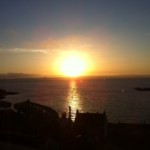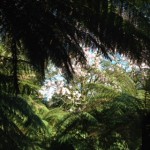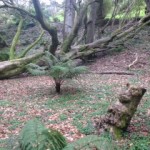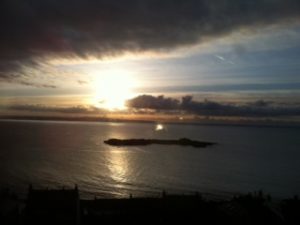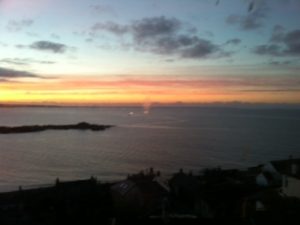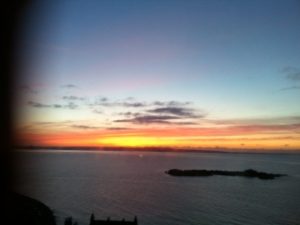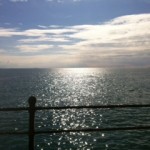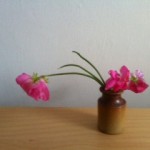
Serendipity. Books. Penzance Literary Festival 2015
Serendipity. Books Penzance Literary Festival 2015
The Penzance Literary Festival 2015 was under way when I glanced into my programme. My eye was drawn to an author I had missed:
Uncertain Light: a journey through unknown territory with Marion Molteno.
‘In the mountains of war-torn Tajikistan, rebels abduct a UN peace negotiator. The lives of those closest to him begin to unravel… The latest novel from award winning writer Marion Monteno takes you to places you have never been, alongside people you can identify with. It’s also a personal journey…. ‘
I had to go and listen.
Marion, a South African, spoke seamlessly about her life travelling Asia and Africa on educational projects and working with Save The Children. Her life was fascinating as a subject all on its own.
As she talked about Uncertain Life, I wondered if she had based her novel on the kidnap of five British Military Observers in Sierra Leone in 1999. My son, working with the UN at that time, was one of five unarmed soldiers taken at gunpoint and held for five days.
That day in 1999 had been an ordinary summer afternoon.I had been out buying plants for my garden…
As I draw up to my cottage I see two men in uniform standing by my front door. The day shivers to a stop. I was an army wife for seventeen years. I know what uniforms on a doorstep means.
I open the car door. Climb out. The men in uniform glide towards me; check my name; my son’s name.
‘He’s dead?’ I whisper as the world disappears into a pinprick. There are just the uniforms, the doorstep, me. They shake their heads; reassure me. ‘No. No. Your son is not dead. Please… let’s go inside.’
The senior officer unrolls a sheet of paper and reads out a prepared statement. My son, along with four other Military Observers is missing, kidnapped by rebels while trying to rescue a group of kidnapped children. Nobody knows where he or any of the hostages have been taken…
‘But they’ll be found? ‘They’ll be rescued?’
The two officers stare at me, kind, compassionate. ‘Every effort is being made to secure the whereabouts of the hostages. Every effort will be made to rescue them, but I am afraid we cannot pretend this is not a very serious incident… British government ministers are flying out to Sierra Leone as I speak…’
I realize then. See it in their eyes. My son may not come out of this alive.
The officers warn me that the story is going to break on the 6pm news. They leave me contact numbers. I will be assigned a welfare officer.
I watch the kidnap of five British soldiers unfold on television. It feels nightmarish and surreal. The Military leap to support me. The village closes in around me. Friends arrive round the clock so that I am never alone.
I am protected from the press, given a special phone line with a liaison officer with a beautiful, calm voice. His name is Simon. He assures me he will be on the other end of the line day and night. And he is. Without him I would have survived those five days
Sometimes, I have to ring just to hear his voice. He offers me snippets of news that is kept from the media. He tells me how well trained my son and all the kidnapped solders are. How well versed for this very real threat of abduction… they know how to survive. His gentle voice gives me hope when I think I cannot bear another moment.
At night I obsessively listen to the World Service. I wonder if the foreign correspondents, reporting on the cruelty and barbarity of the drugged and armed Sierra Leone rebels ever give a thought to the sleepless wives and mothers listening in terror as they describe, in detail, all the shockingly brutal ends their loved ones might meet.
Simon talks me through the political negotiations that are happening in the background. When the rebels begin to let the hostages out, slowly, one by one, I become terrified the rebels will not release all the hostages; that it is some macabre game they are playing.
As the end unfolds I watch a dark and fuzzy screen on the television. Ambulances wait in a clearing for the hostages to emerge from the jungle. I tell Simon, on the other end of the phone. Bizarrely, satellite is faster than his information and he cannot verify what I think is happening
I can see blurred activity round the ambulances then a sudden ribbon of words across the screen. ‘The five British hostages are out…’
A news correspondent is shouting. ‘They are safe. All the hostages have now been released…’
Many years later I ask Marion Molteno if she had based the idea for her book on the kidnap of British soldiers in Sierra Leone. I am taken aback by how hard my heart is thudding as I speak as the moment on the doorstep comes flooding back. I am unaware of the reaction of other people in the room until I am told later.
I go and sit in my garden with Uncertain Light, unsure whether I am going to be able to read it. I open it and scan the first few pages. The prose is lovely. It is not my son’s story. It is a novel conjured from imagination and knowledge of a particular region.
Even so, I find I am reluctant to read this book, as if somehow, this story that is imaginary might, under my fingers, turn into the story that was real. I am unnerved by little flashbacks, of buried memory. Of how fast loss can come.
Writing this blog has taken me sometime. I could not make it the moment, the immediate aftermath of a chance encounter. As writers we often cannibalize other peoples lives. Weave them into our own fictional story. This is not my story. It is my son’s.
A writer imagines a plot for the kidnap of UN observers in Tajikistan. In the basement of a tiny theatre at the other end of the world another writer steps out of the pages of informed imagination to make her plot all too real…Art mirrors life in strange and serendipitous ways. Disparate lives connect for a moment. It is disturbing.
I do not yet know how Uncertain Life will end, only that the people within it will never be the same. Life is fragile, transient and precious. A reminder never to forget that. Nor take the world for granted.
These are some of the authors I enjoyed from Penzance Literary Festival 2015
Sadly, I was not back from London in time to catch the launch of Laura Barnett’s novel The Versions Of US at the Edge Of The World bookshop. Or to listen to Tim Hannigan talking to Phillip Marsden about his new book Rising Ground.
I much enjoyed Susimita Bhattcharya talking about her book, The Normal State Of Mind. I also enjoyed listening to Lesley Hawden in conversation with Joy Salisbury. Her book Jakob’s Colours is about the largely unknown gipsy holocaust.
I found Sarah Winman in conversation with Patrick Gale impressive and moving. She is an exceptionally honest writer and this comes across eloquently. Helped by the fact t she is an actress and has a winning and charismatic presence.
This singled her out for me. She struck me as a writer who, within the confines of having to be commercial to sell her books, is disinclined to be pigeon holed into any particular direction or pushed into deadlines before she is ready. She does not have a Facebook or twitter account to promote herself.
As one who happens to think the constant promotion by authors of their books can be counter-productive this is both unusual and refreshing. Winman doesn’t need to over promote. She can jump into the bestseller list because she has a distinctive, original and quirky voice. As you can guess, I’m a fan!
I loved When God Was A Rabbit. It affected me deeply in the same way that
Helen Dunmore’s, A Spell of Winter did. I think it is something to do with the integrity of the author.
